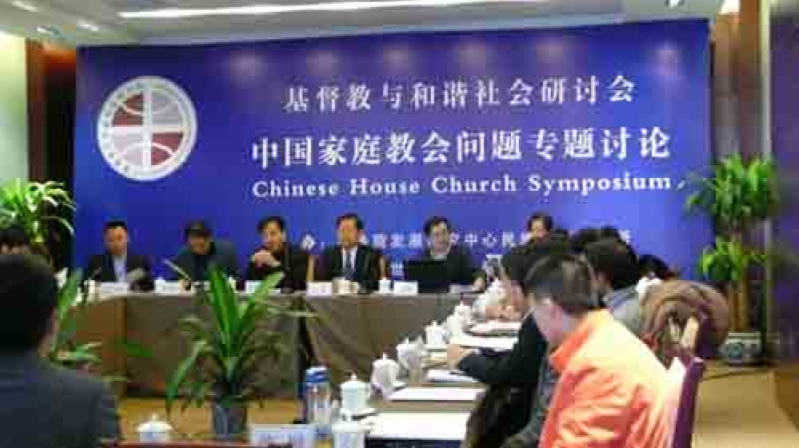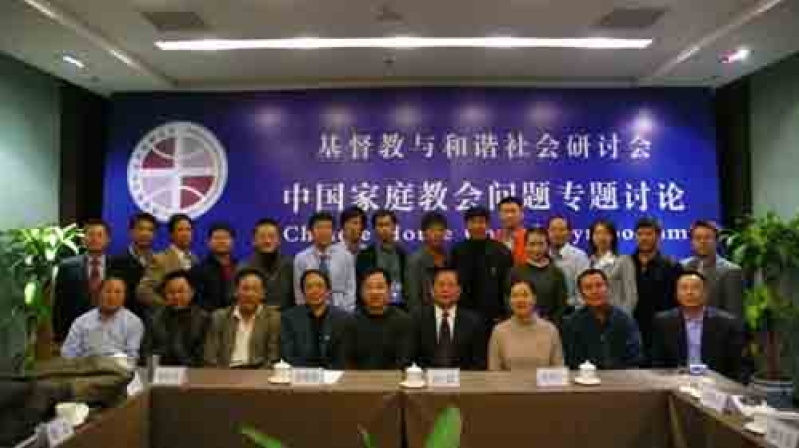

From Nov. 21 thru 22, co-hosting with the Beijing Pacific Solutions Social Science Research Institute, Minorities Development Research Institute, a branch of the China State Council's Research and Development Centre, hosted a special topic seminar with the theme “Christianity and Harmonious Society Seminar – Chinese House Church Symposium.”
This is the first time that the Chinese officials held a seminar on House Churches. Representing the Beijing House Churches, Liu Tong Su participated in the event and introduced this meeting with the article “Chinese Government Officials for the first time held the House Church Syposium.”
In his article, Liu explained the background of this symposium; in recent years, the house churches have been developing rapidly in mainstream society, which has not only brought wide-spread attention from all sectors of the society and in particular the scholastic world, but has also aroused the close attention of the highest level of Chinese leaderships.
While instructed by top Chinese officials, the state departments, for example, religious bureau, public security bureau, and Xinhua agency, have began investigating in this particular concern; official and regular citizen’s research organizations have joined in the research trend on this matter of concern.
Liu stated in his report that the research report presented at the seminar were mostly about the house church’s development situation, including numbers, geographical layouts, cultural make-ups, reason of formation, history, structure, development trends, external relations, and etc.
Many research reports also revealed the government’s religion management policies. Almost all of the reports reveal that the present China’s religious governing institutions and laws and regulations are seriously lagging behind when compared with the rest of the society’s developments. In the actual case-studies, the conference was weak in presenting actual proposals for improvements.
Towards the end, the Beijing House Church representative emphasized the participant’s agreement and affirmation of important meaning for the House Churches to communicate with the government, but the House Church representatives insisted unanimously on the basic guiding principles in their dialogue with the government:
“Only God can control the spirituality of faith; no worldly authorities have the right to control a man’s spirit; speaking in terms of faith, House Churches (any true church) will only submit to Christ and reserves the right to make decision on their own, and they would rather die than to accept the control of any worldly authorities. The government has been entrusted by God with the authority to maintain external public order; If the government can limit its governing territory to areas of maintain public order in external conducts, then according to the teachings of the Bible, House Church will definitely obey those in authority within the boundary that God has set.”
The event participants belong to four groups: officials from the government research organizations, including the Ethnic Develop Research Centre Director Zhao Su Ching, Wang Hong, and Vice Director Hu Jian Ching; research organizations established by the officials and research professors from Universities, such as influential scholars Lu Peng, Kao Shi Ning, Li Xian Ping, Yu Jian Rong, and young scholars Fan Yea Feng, Sun Yi, Zhang So Dong, etc; regular citizen’s researchers such as Li Fan, Ciao Zhi, etc.; six House Church members, who were specially invited, such as Yo Guan Huey, Zhang Deng Xin, Liu Tong Su (Beijing House Church), Zhang Yi Nan (Hennan House Church), Zheng Yuay Quo, Yen Xin En (Wenzhou House Church).
[Source: Mainland Christian Forum: http://jesus.bbs.net/bbs/0001/5071.html]
[Editor's note: reporter Titus Lee contributed to this report.]






